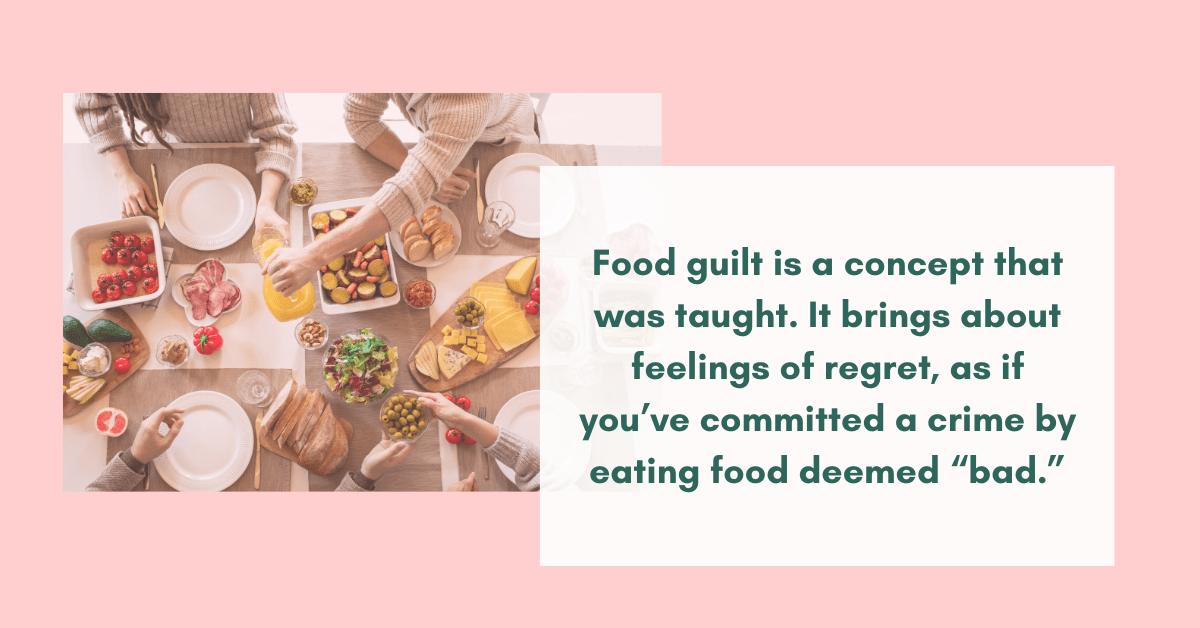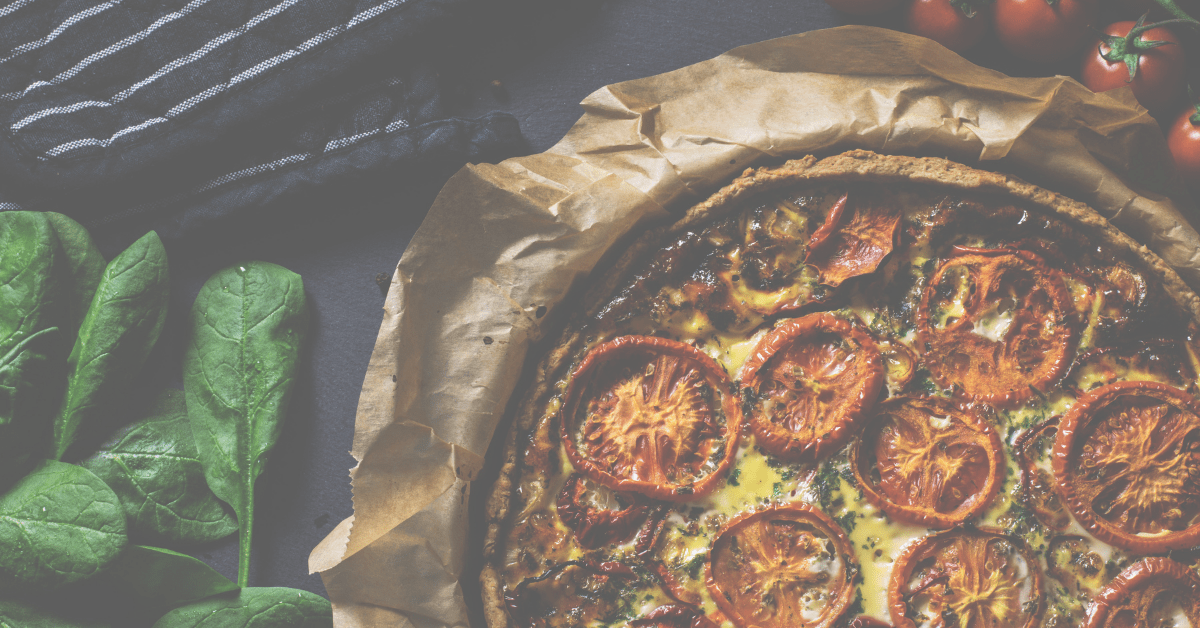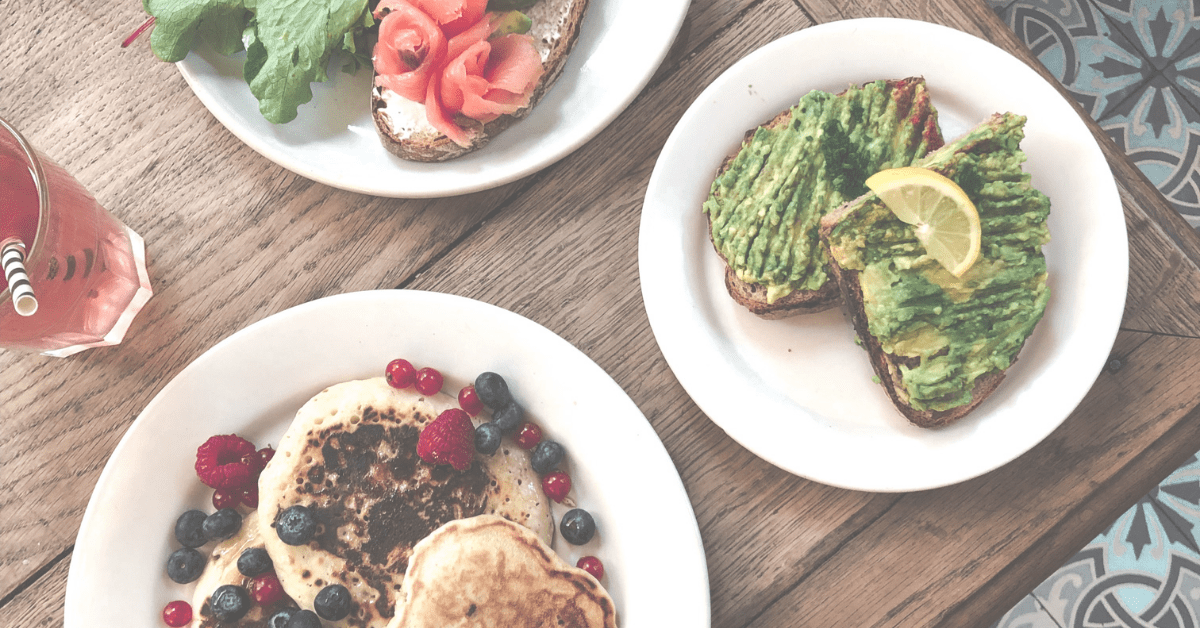5 Tips to Overcome Food Guilt
August 9, 2021
When you’ve struggled with an eating disorder or disordered eating, you’ve likely experienced food guilt. Take a situation where cake is offered for dessert…
If you eat the cake, you struggle to truly savor and enjoy it since you’re preoccupied with why you shouldn’t be eating it, and the food guilt beats you up for days.
If you don’t eat the cake… you’re annoyed that you missed out on dessert, but dealing with the food guilt just didn’t seem worth it. Either way, it feels like a lose-lose situation.
However, you CAN eat without food guilt, and a peaceful relationship with food is possible for you! All it takes is unlearning a few things and PRACTICE.
First, let’s discuss what food guilt is and where it came from before we dive into the 5 tips!
What Is Food Guilt?
Food guilt is a concept that was taught. It brings about feelings of regret, as if you’ve committed a crime by eating food deemed “bad.”
Where did food guilt come from?
- Diet culture screams that certain foods are either “healthy” (“good”) or “unhealthy” (“bad”).
-
- If a diet states that potato chips aren’t allowed, you learn that potato chips are associated with negative connotations such as “bad,” “too high in calories,” “fattening,” “evil,” etc.
-
- From then on you feel guilty for eating potato chips because your diet told you not to and it feels like you’re breaking the “rules.”
- Early childhood messages from parents, friends, coaches, or even doctors tend to teach that food has a moral standard.
-
- Some parents restrict sweets in the household, and maybe even hide them on the top shelf. This sends the message that sweets are off limits.
-
- Overhearing girls in high school dieting together or a coach who demonizes sugar introduces a new awareness around food.
-
- Being weighed by a doctor and given a lesson on “right” and “wrong” food choices causes certain types of food to be associated with weight.
- Misinformation about nutrition is widespread, especially with social media readily sharing diet trends. With an internet search today, you can find a reason to believe any type of food is “unhealthy.”

Why Is Food Guilt So Common and Normalized?
Diet companies, products, and weight loss specialists are all part of the $72 billion diet industry. New diets are pushed all the time and society has latched onto the diet industry’s marketing schemes.
Grocery stores sell “guilt free” snacks, restaurants have a “skinny menu,” and it’s nearly impossible to eat a cookie in a social setting without “burning it off at the gym” remarks.
Food guilt is common, but that doesn’t mean it’s normal or healthy. Food guilt and disordered eating go hand in hand. It will always be more damaging than any so-called “bad” food.
These 5 tips will help you through the process of overcoming food guilt and into a more peaceful relationship with food!
5 Tips to Overcome Food Guilt
1. Identify the Origin of Your Beliefs About Food
Say your friend surprised you with a donut as a thoughtful gift, but now the guilt is setting in.
Get curious and try to discover why you feel guilty in the first place.
Who told you donuts were “bad”?
Have you always thought donuts were “bad” or was this belief introduced to you at some point?
Do you remember a time before donuts were labeled “bad,” and when eating donuts didn’t fill you with guilt?
Is this belief about donuts true? Can you find evidence with credibility to support this?
Curiosity is power, because questioning your food guilt allows you to logically conclude that there’s nothing to feel guilty about for eating a donut!
2. Ask Yourself, “Is this Belief in Line with My Goals?”
Pause and consider whether feeling guilty for eating a donut is moving you towards your recovery goals or against them?
Does obeying the eating disorder in feeling guilty honor your goals? Or does practicing removing guilt from donuts keep you in line with your goal to have a peaceful relationship with food?
Why did you eat the donut to begin with? It’s possible that deep down you know accepting a donut from your friend is in line with your goals because you do want to become comfortable with spontaneous treats!

3. Zoom the Lens Out
If you’re focused on feeling guilty for eating a donut, what happens when you zoom the lens out and look at your entire day of eating? What about your whole week of eating? The donut you ate seems pretty minute in the grand scheme of things, right?
Look at the bigger picture. We eat a variety of foods each day and when you hyperfocus on one donut, you’re negating everything else you ate!
Does your donut fit in the big picture?
Odds are your day or week also includes foods such as fruits, oatmeal, sandwiches, pasta, vegetables, chicken, eggs, etc. A donut certainly fits right in, because all foods fit!
4. Ask Yourself, “Does Keeping this Belief Service Me Right Now?”
Step back and assess the situation or circumstance in which you are eating. Are you with family, friends, or people who bring you joy?
In this example, you accepted a donut from a friend who wanted to thoughtfully surprise you.
Do people surprise you with donuts everyday? No. Do you always have to eat donuts if someone surprises you with them? No.
Perhaps the donut was a fun surprise and since your friend graciously thought of you, it made eating the donut a special experience!
Instead of solely worrying about the food, sometimes it’s simply about the experience. Just like eating a hotdog at a ball game or popcorn at a movie!
Try and look at the setting you’re in and ask yourself, “Will passing up on this food really serve me at this moment? What would it be like if I didn’t eat this food right now? Would I be missing out on the experience?”
5. Exposure Work with a Food Challenge!
Taking opposite action and challenging yourself by eating the exact food you feel guilty about is one of the best ways to overcome food guilt.
Exposure work is so effective because you’re facing your fears head on and over time you’ll see that nothing bad happens, the food becomes safer, less scary, and less associated with guilt.
It can help to schedule regular food challenges into your day so that they’re repeated often.
Food challenges help establish a more comfortable relationship with food because whatever food you’re feeling guilty about, it eventually becomes desensitized, just like any other food.
It’s best to do food challenges with people in your circle of support that will eat with you and provide a distraction from any negative or intrusive thoughts.

Are You Ready to Let Go of Food Guilt?
Working through these tips will help you break free from the demands of your eating disorder and into a relationship with food where you feel FREE.
Do you need guidance and support in overcoming food guilt? The dietitians here at Nutrition Counseling Center offer one-on-one appointments to meet you right where you’re at in your journey!
Leave a Reply Cancel reply
designed by morgan sinclair designs
privacy policy
//
meet the team
Nutrition counseling
contact
Blog
Monthly Newsletter
Sign up for our
office locations
Phone number
248-686-0340
fax number
248-655-7478
43334 W. 7 Mile Road, Suite 300, Northville, MI 48167
book initial session
8949 Dixie Hwy
Clarkston, MI 48348